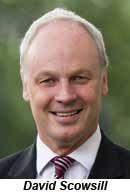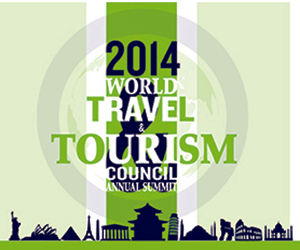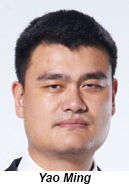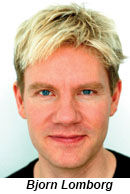For much of its 24-year existence, the World Travel and Tourism Council (WTTC) had, despite its name, a perspective and membership with a decidedly Western tilt. But with a growing membership that's now almost evenly divided among U.S., European and Asian global travel companies, the agenda for its upcoming annual summit reflects a sharpened focus on East Asia.
The summit will open on April 24 in Sanya, Hainan, the capital of the southernmost province of China. It's the second time in five years that the 126-member body elected to meet in China, an atypically quick return to a previous host country. The selection is indicative of how fast China's star has risen among the industry's elite.
 "We go to different countries for different reasons at different points of time," said WTTC CEO David Scowsill. "We're in China this time because China is rapidly becoming a powerhouse in travel and tourism as well as a global economic force. We'll be having specific summit sessions about China; there are a number of questions about how it's going to evolve."
"We go to different countries for different reasons at different points of time," said WTTC CEO David Scowsill. "We're in China this time because China is rapidly becoming a powerhouse in travel and tourism as well as a global economic force. We'll be having specific summit sessions about China; there are a number of questions about how it's going to evolve."
The Chinese travel industry, when measured by prices and outbound tourism, is on track to become the world's largest travel economy, surpassing the U.S. in 2027. It's well known that destination marketing companies around the world are scrambling to attract Chinese travelers and that Western hospitality brands are proliferating within China.
But less familiar is the story of how Chinese travel companies are expanding their global reach. Many large Chinese companies have come to view WTTC summits as key networking opportunities. Relatively new WTTC members from China have begun actively investing in the companies of WTTC members headquartered in the West: Shanghai Jin Jiang International Hotels has taken a 50% stake in the U.S.-based Interstate Hotels & Resorts, and HNA Aviation acquired 20% of the Spanish NH hotel chain, among other recent deals.
"WTTC is really a global organization now in two aspects," Scowsill said. "Firstly, we're now in all sectors, every single segment, from airports to cruise lines to tech companies, etc., etc. And secondly, geography. And that's important. If you're running a business based in the U.S. or Europe, it's vital to have key relationships with big companies in Asia, and vice versa. There are a number of transactions that happen because the CEOs of these companies are meeting at our summits."
 Although WTTC membership is relatively small, its yearly summits are attended by thousands of interested observers who are invited to listen to speakers, onstage interviews and panels populated by members and nonmembers. (Editor's note: The author will be among those conducting an onstage interview.)
Although WTTC membership is relatively small, its yearly summits are attended by thousands of interested observers who are invited to listen to speakers, onstage interviews and panels populated by members and nonmembers. (Editor's note: The author will be among those conducting an onstage interview.)
In addition to its focus on China, the summit will advance themes that had been developed in previous gatherings. Scowsill, who assumed leadership of WTTC in 2010, has been building the case that travel and tourism is a force for good in a difficult world environment.
To that end, part of his focus is economic. One of the original goals of WTTC was to produce research demonstrating the economic importance of the travel industry. Its most recently commissioned analysis reported that the $7 trillion global industry accounts for 9.5% of global gross domestic product. Its 4.3% growth rate forecast for 2014 tracks 1.5 percentage points ahead of global GDP, as well. Scowsill frequently notes that governments that benefit greatly from travel and tourism often fail to understand its role as a leading export, job creator and economic engine.
And to further underscore the industry's macrobenefits, he has brought in world leaders including former President Bill Clinton and former British Prime Minister Tony Blair as speakers to discuss how travel can play a positive role to promote cross-cultural understanding. This year, former United Nations Secretary General Kofi Annan will address the topic "Travel and Tourism: A Force for Good in a Problematic World."
 In addition to industry CEOs, tourism ministers, association leaders, economists, futurists and journalists who will speak in Hainan, a few celebrities whose link to tourism is not obvious will be brought to the dais. Former NBA star Yao Ming, who now owns a professional basketball team, the Shanghai Sharks, and a winery in China, will address a travel-related issue about which he feels strongly: the poaching of African animals whose tusks, horns and other byproducts end up in markets in China. Yao feels it's particularly important to discuss the subject on Chinese soil.
In addition to industry CEOs, tourism ministers, association leaders, economists, futurists and journalists who will speak in Hainan, a few celebrities whose link to tourism is not obvious will be brought to the dais. Former NBA star Yao Ming, who now owns a professional basketball team, the Shanghai Sharks, and a winery in China, will address a travel-related issue about which he feels strongly: the poaching of African animals whose tusks, horns and other byproducts end up in markets in China. Yao feels it's particularly important to discuss the subject on Chinese soil.
Jeffrey Katzenberg, CEO and co-founder of DreamWorks, will be interviewed onstage by Abercrombie & Kent Chairman Geoffrey Kent about the business environment in China, where Katzenberg has several investments.
Three economists will, separately, be speaking about issues they feel will impact the future, some providing economic data specifically about the industry, others addressing the environment in which travel will operate.
WTTC turns to Oxford Economics to produce its annual analysis of the impact that travel and tourism has on global economies, and the research firm's chairman, John Walker, will be interviewed onstage.
DeAnne Julius, who had been chairman of the Royal Institute of International Affairs for nine years before stepping down in 2012, will give the opening keynote in a 90-minute session exploring "Economics, Politics and Demographics: Where Do We Really Stand?"
 The session proposes to grapple with a wide range of weighty topics and current trends, including the shift toward Asia; the rise of the middle classes in emerging markets; social movements and media; and mobile technology, all in the context of extreme weather and changing climates.
The session proposes to grapple with a wide range of weighty topics and current trends, including the shift toward Asia; the rise of the middle classes in emerging markets; social movements and media; and mobile technology, all in the context of extreme weather and changing climates.
Following Julius will be Bjorn Lomborg, director of Copenhagen Consensus Center and adjunct professor at Copenhagen Business School. Lomborg has written extensively about his belief that societies reflexively react to perceived problems by proposing actions designed to limit further damage rather than focusing on technology and innovation to produce next-generation solutions. (See related report, "Economist on innovation as solution.")
Technology has been a perennial focus at WTTC summits, and this year a session titled "Staying Ahead of Tomorrow" will explore new technologies that will drive innovation in the industry as well as examine to what extent they could be disruptive forces.
Scowsill believes that part of WTTC's mission is "to peek over the horizon," and indeed, issues that surface first at the organization's global summits have proven to be early indicators of policy trends, global corporate strategic planning and technology development. What is discussed in Hainan later this month will likely become industry talking points for the rest of the year and beyond.
Email Arnie Weissmann at aweissmann@travelweekly.com and follow him on Twitter.